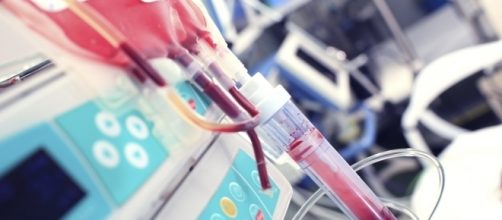One of the most misunderstood and misjudged beliefs practiced by Jehovah’s Witnesseses is their refusal to either donate blood or accept a transfusion of blood in a medical emergency. So firm is their conviction in this regard that they are willing to die in order to uphold a scriptural command to “abstain from blood.” But this long standing precept now has forced many in the medical community over the last number of decades to admit the stand of the Witnesses is – and has always been – a medically sound decision.
Why don’t Jehovah’s Witnesses accept blood?
To be clear, Jehovah’s Witnesses are a people of high morals and principles. Like anyone else, they seek out the best medical treatments available. They do not practice “faith healings.” But just as organ transplants, abortions, and right-to-die decisions are left to one's conscience, deliberated on in courts and debated for their ethical ambiguity, Blood Transfusions are also questioned – not just for medical reasons, but based on Bible commands.
Witnesses believe that the life force of a person – their spirit if you will – is found in one’s blood. From a physiological point of view, this is accurate. Blood is linked intrinsically to life; it carries life-giving oxygen to cells and removes carbon dioxide.
But the Bible also makes a number of references to blood, first off as “belonging” to God, and second, not to consume it.
Bible references to blood
When Noah and his family left the ark, they were allowed to eat animals, but not their blood (Genesis 9:3-6). In the law code given to the Israelites, God forbade the eating of blood (Leviticus 17:10-14, Deuteronomy 12:23-25).
In the First Century, thedirection sent to the early congregations was the same – to “keep abstaining from blood” (Acts 15:29). That apostolic decree was binding, was not allayed in medical emergencies, and was listed among other well-known Christian tenets as not giving worship to idols and not engaging in immorality. Whether the blood enters via one's mouth or through a transfusion directly into the veins, it is the same.
A medically sound decision
Decades ago, a refusal to accept blood was seen as ill-informed – even barbaric. But no longer. Doctors now see the tremendousmedical risks of blood transfusions. More than ever, major hospitals and trauma centers employ a variety of bloodless alternatives – thanks in partto studies done by Jehovah’s Witnesses.
“When I was in medical school, honestly, that was never a thing. People didn’t talk about blood conservation,” commented Dr. Daniel DiBardino, a surgeon at Hennepin County Medical Center (HCMC) in Minneapolis. “You just used blood because that’s what you did. And that has changed.”
HCMC is one many hospitals to roll out a non-blood program. The hospital’s Bloodless Surgery and Medicine Program even has a firewall restrictionthat physically prevents doctors from overriding a patient’s non-blood medical proxy.
Back in 2004, the medical journal Continuing Education in Anesthesia said: "Many of the techniques developed for use in Jehovah’s Witness patients will become standard practice in years to come." And they have. A 2010 article in the journal Heart, Lung and Circulation said that "bloodless surgery should not be limited to Jehovah’s Witnesses, but should form an integral part of everyday surgical practice."
Alternatives to transfusions
Witnesses accept a wide range of bloodless alternatives, such as hemodilution – where blood is diverted but remains in a circuitous relationship to the patient and volume expanders are added – and cell salvage – which captures and returns blood lost during surgery.

